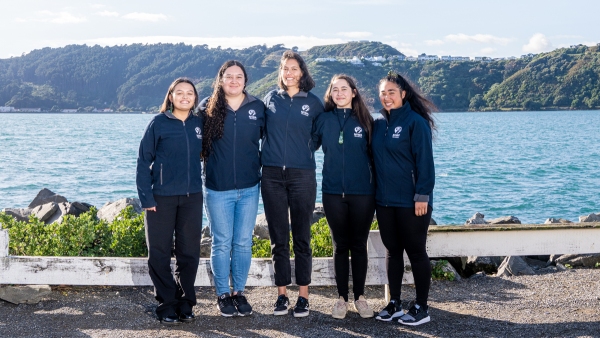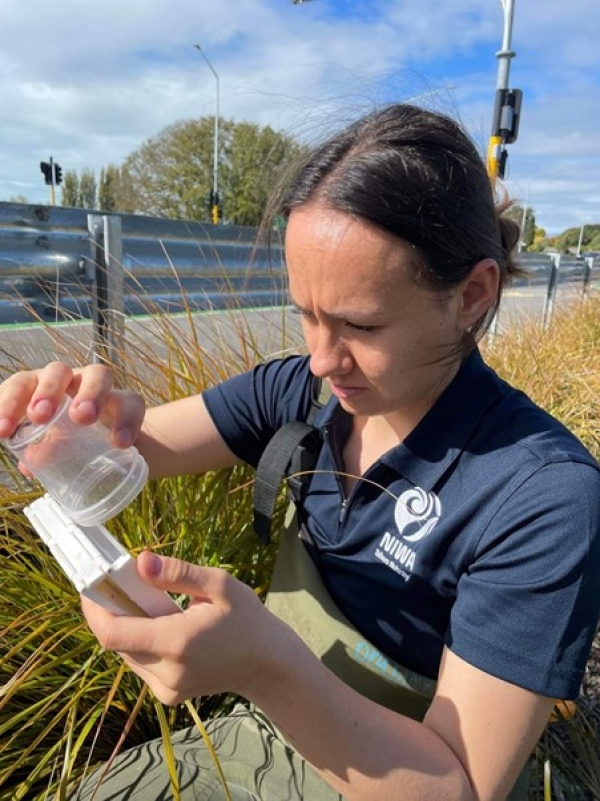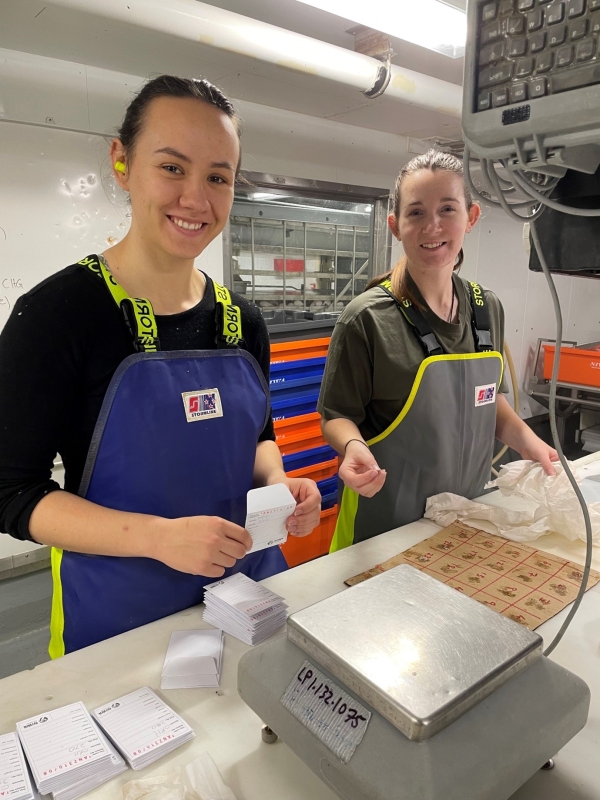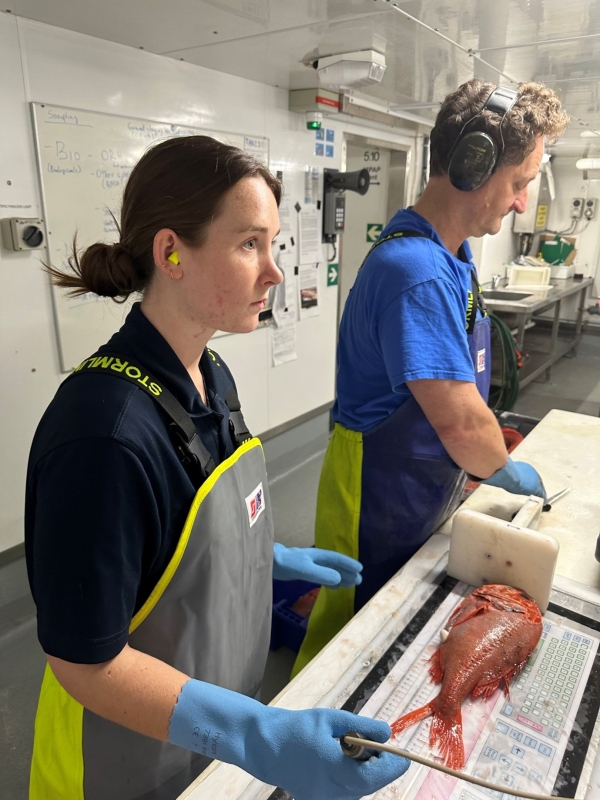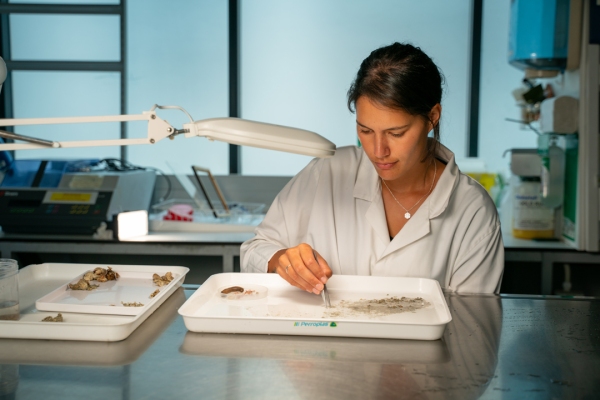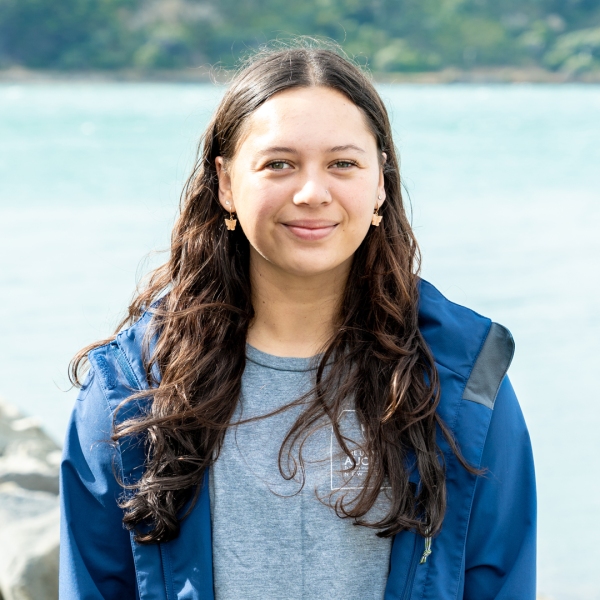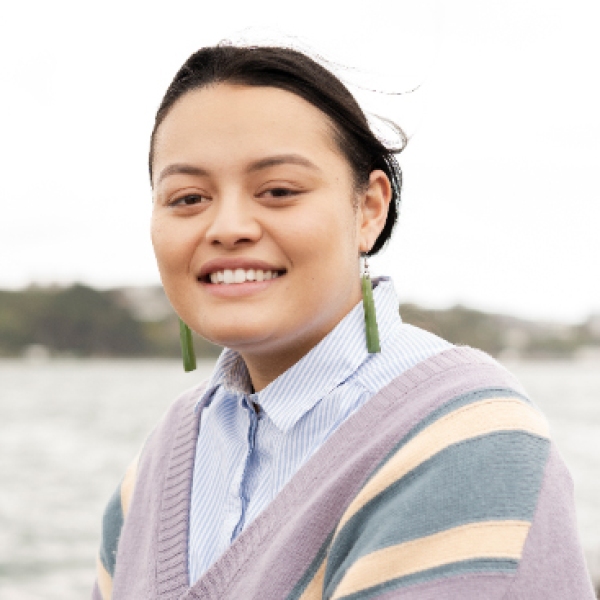NIWA, through its Māori Environmental Research team Te Kūwaha, is working in collaborative partnerships with Māori businesses, and whānau, hapū and iwi throughout Aotearoa, combining their skills in scientific enquiry with mātauranga Māori expertise, within the frame of tikanga Māori.
NIWA’s Te Kūwaha Graduate Internship programme has been established to help support and create tangible pathways for the next generation of Māori researchers. The purpose of the programme is to encourage Māori science graduates to consider ongoing postgraduate study and Māori-centred environmental research as a career pathway
Interns work across NIWA for 12 months gaining practical experiences, building networks and developing a platform from which to consider their longer-term career opportunities in research. They will gain experience in freshwater, marine and estuarine sciences, fisheries, aquaculture, climate change and hazards, social research and mātauranga Māori, while learning how to communicate effectively with iwi/hapū/whānau and work collaboratively across disciplines.
2022-23 interns
Rose Kuru
Ngāti Kahungungu, Ngāti Kere
It was an interest in exploring the climate change space that led Rose Kuru to a Te Kūwaha Graduate Internship.
Rose is part of the fourth intake of the NIWA Māori Graduate Intern programme and is based in NIWA’s Christchurch office. She holds a BSc with a double major in Biotechnology and Cell and Molecular Bioscience, as well as a Master of Environmental Science from the University of Victoria.
Climate change was a topic that popped up all the time at university, she says.
“I was eager to learn more at the physical science and social science interface, especially how our communities could deal with the hazards and adapt to the changes that climate change will bring.”
A highlight of the internship has been working alongside the hazard researchers based at NIWA’s Christchurch office.
“They are so great at sharing their time and involving you in their work, plus I have got to do some interesting research in two hazard and climate change Endeavour programmes - data de wrangling of fish abundance and water temperature data for Toitū ngā taonga waimāori and within the Mā te haumaru ō te wai programme collating information around the Wairewa / Lake Forsyth case study site and conducting a literature review on Mātauranga Māori frameworks on flooding case study development.”
While she enjoyed the many fieldwork opportunities Rose says that the internship has ignited her passion to work in the climate change space.
“It has been the best exposure opportunity I could have asked for coming out of university.”
Pictured above: 2022-23 Te Kūwaha Graduate programme interns Rose (left) and Ruby (right) aboard RV Tangaroa. [NIWA]
Ruby Mckenzie Sheat
Ngāi Tahu, Ngāti Māmoe, Waitaha
A Te Kūwaha Graduate internship seemed like the perfect opportunity to explore the many environmental research career pathways open to Ruby Mckenzie Sheat and to further delve into her interest in Mātauranga Māori.
Ruby is part of the fourth intake of the NIWA Māori Graduate Intern programme and is based in NIWA’s Christchurch office. She has a BSc in Biology and Geography and a Masters in Disaster Risk and Resilience from the University of Canterbury.
It has been a busy 2023 for Ruby undertaking freshwater and marine fieldwork, including a two-week voyage on the Tangaroa, as well as working alongside the Te Kūwaha research team.
“The mentoring that is part of the internship has been great,” says Ruby.
“The Te Kuwaha team was always there for me to ask questions and share their experiences as Māori researchers.”
Working at NIWA during Cyclone Gabrielle and its aftermath opened research opportunities for Ruby exploring the timeline of events and the risk communications that occurred.
“This experience has solidified my future career direction. While I have really enjoyed the chance to use the skills learnt in my undergraduate degree, my passion for applying mātauranga Māori into climate change and risk adaptation research is now even sounder.”
2021-22 intern
Jessie Scarrott
Jessie was part of the third intake of Te Kūwaha Graduate Interns. She graduated with a BSc in Ecology and Zoology at Massey University and is completing a PgDipSci in Marine Science at the University of Auckland.
During her internship Jessie catalogued species for NIWA’s national invertebrate collection, mapped seafloor habitats, surveyed upper North Island ports for invasive marine pests, and helped to develop an identification guide for introduced species.
Jessie is currently enrolling in a MSc through the University of Auckland to work alongside mana whenua and build new knowledge around the implications of a recently arrived marine invasive species on kaitiakitanga and the sustainability of te taiao.
2020-21 interns
In 2021 two Te Kūwaha interns joined NIWA researchers and crew on RV Tangaroa for a fisheries survey off the east coast of the North Island of New Zealand.
In the video Mel and Kara discover what life is like on the high seas by joining fisheries scientists, marine electronics technicians, captain and crew, to undertake a fisheries survey. They assisted the team below deck in the lab with collecting biological sampling and above deck colleting acoustic data of the seafloor and marine habitats. This data is used to help policy makers manage our fisheries.
Kararaina Te Puni
Kararaina has a background in chemistry and recently completed her honours in mechanochemistry at the University of Auckland.
Melanie Mayall-Nahi
Melanie recently finished her MSc in Environmental Management at the University of Auckland. Her thesis looked at how kaitiaki active experiences of river restoration can broaden our understanding of cultural and spiritual dimensions of restoration.
2019-20 interns
Ngāpera Keegan and Tekiteora Rolleston-Gabel were the first two young researchers in NIWA’s Te Kūwaha Graduate Programme. We caught up with them halfway through their internships to find out what they had been doing, read more at https://niwa.co.nz/publications/water-and-atmosphere/water-atmosphere-2….

